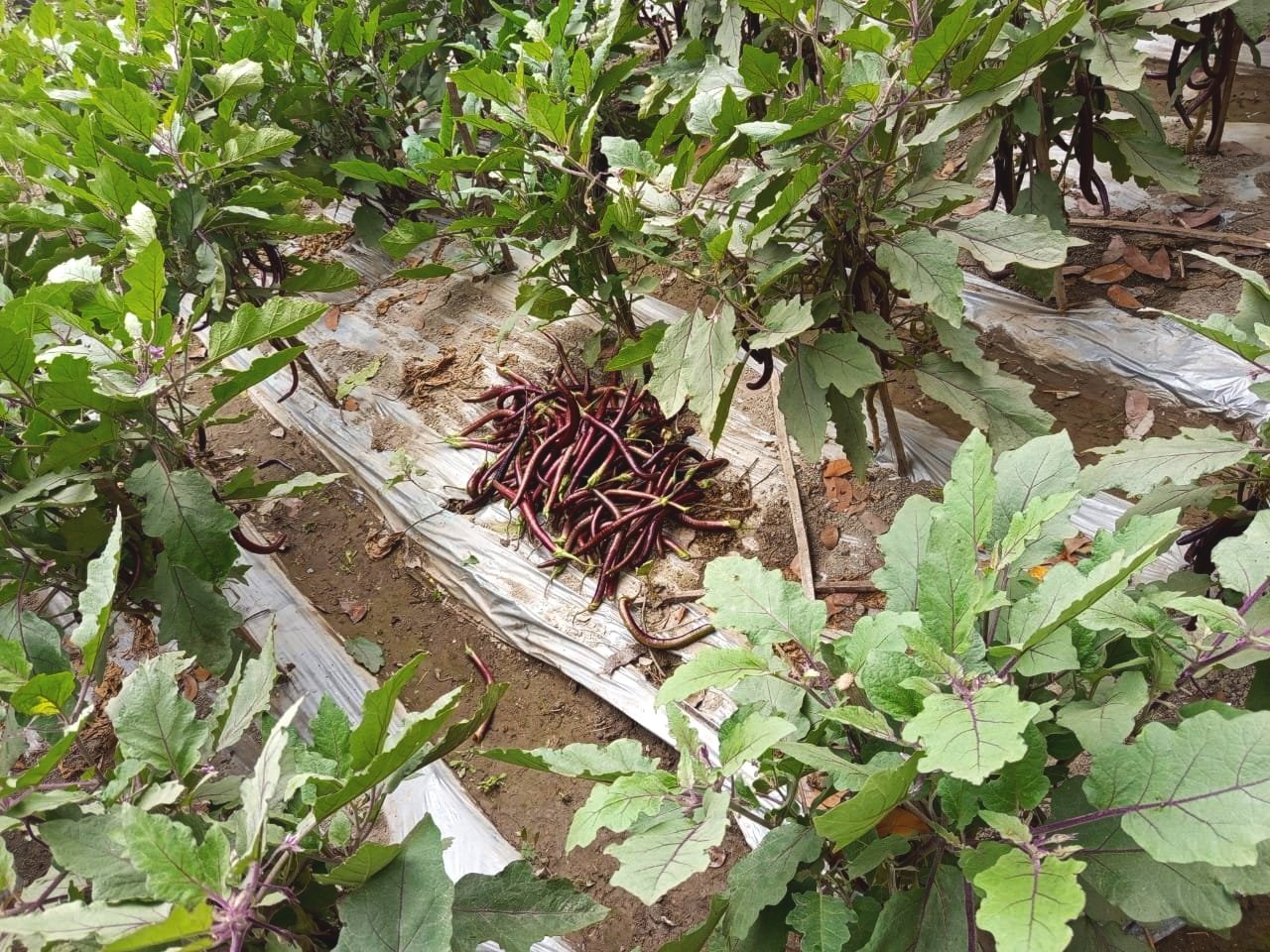
Improved brinjal systems
Irrigation constrained diversification
Overview
The pathway implemented in the villages of Khan Para and Babu Para in Gaddimari area focuses on increasing eggplant (brinjal) cultivation and production. The area's access to shallow tube wells for irrigation makes it feasible to cultivate brinjal, while the suitability of char land offers additional opportunities for vegetable farming. By promoting early sowing and early harvest practices, both char and non-char land can be optimized for brinjal production. This pathway aligns with local conditions, such as medium land availability, which supports the cultivation of brinjal, a crop known for its potential for high returns and price stability, despite its labor-intensive nature and higher initial investment. Brinjal cultivation fits well into the local agricultural calendar, especially following T. Amon rice cultivation, providing a seamless transition to vegetable production during the fallow or vegetable-boro rice phase. This makes brinjal a financially attractive and practical choice for farmers, helping them diversify and increase their income.
Who is working in the Pathway
The partners for pathway implementation are BAU, RDRS, CIMMYT, DAE, and the Union Farmer Federation.
Activities
Key Planned activities for the eggplant cultivation pathway include
Awareness Meetings: Organizing sessions to inspire and encourage farmers to adopt eggplant cultivation.
Inception Meeting: Initial meeting with farmers, government stakeholders, and Union Parishad representatives to discuss the project and its goals.
Booklet/Leaflet/Poster Distribution: Distributing informative materials on eggplant cultivation, technologies, and best practices.
Practical Demonstration Sessions by Model Farmers: Hands-on demonstrations by successful farmers showcasing best practices in eggplant cultivation.
Training Program: Organizing a 3-day practical class and training for 15 farmers with medium to high elevated land, focusing on cultivation techniques.
Introduction of Production Technologies: Educating farmers on technologies such as the bagging process, polybed cultivation, and suitable seed varieties, alongside coordination with government offices for inclusion in vegetable demonstration programs.
Farmer Mobilization: Motivating and mobilizing farmers to begin cultivating eggplant as a profitable crop.
Integrated Pest Management (IPM): Training farmers on effective pest management techniques to ensure healthy eggplant crops.
Irrigation Support: Providing guidance on effective irrigation methods for eggplant cultivation to ensure optimal crop growth.
Identification of Irrigation Technology: Identifying and recommending the most appropriate irrigation technology options for the local eggplant cultivation conditions.
Pest Control Technology: Identifying and implementing suitable pest control technologies to ensure pest-free eggplant production.
Results for each year – achievements and what we have learned
In year 1, significant progress was made in promoting brinjal cultivation in the targeted villages. A total of 49 farmers were trained, providing them with the necessary skills and knowledge for successful eggplant farming. One extension material was developed and distributed to assist farmers in understanding best practices. Additionally, a knowledge-sharing meeting was organized to encourage the exchange of ideas and experiences among farmers and stakeholders, fostering a collaborative approach to overcoming challenges. Ten group meetings were held, helping to build a strong network among farmers and encouraging them to share insights and strategies for improving their farming practices. Two demonstration sessions were conducted by model farmers, which provided practical, hands-on learning opportunities. These activities resulted in increased awareness and adoption of effective cultivation practices. The key learnings from year 1 include that the success of group meetings and knowledge-sharing sessions highlighted the value of peer-to-peer learning in overcoming challenges. Additionally, the need for continuous support and monitoring became evident, as farmers showed a strong interest in learning and applying new techniques but required ongoing guidance to fully implement them.

Case Study Report
Brinjal Cultivation
Farm Household Livelihood Diversification: Trade-offs & Synergies

